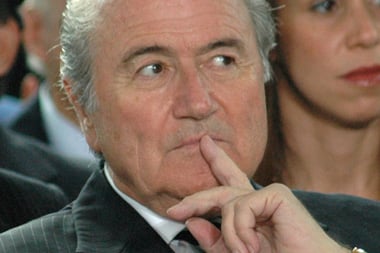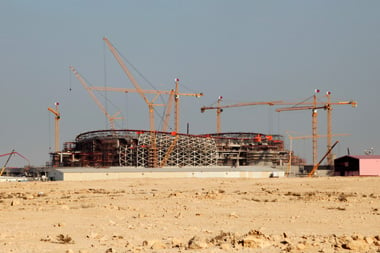Seven revealing facts about how FIFA is managed

As FIFA execs face corruption charges, we highlight some of the more surprising aspects of how the organisation is run
Mark Rowland
It emerged today that, following an extensive probe by the US Department of Justice (DoJ), nine officials at football governing body FIFA have been indicted on charges of racketeering, conspiracy and corruption. The arrests have cast further doubt on the state of business ethics at the organisation, which – as long-time Insights readers will know – has been a recurring theme in our coverage (see here and here, for example).
With these new developments in mind, let’s take the opportunity to highlight some of the more eyebrow-raising facts about FIFA’s management and leadership – and how its actions affect the countries it does business in.
1. FIFA is a registered charity
Despite earning $4.4bn in revenue and $2bn in profit from the 2014 World Cup, FIFA is actually a registered charity, which means that it pays very little tax on its earnings in Switzerland, its home country.
2. It insists on tax exemptions from host nations
FIFA requires a government guarantee from a host country before it will agree to hold the World Cup there. That includes full exemption from tax, as well as exacting specifications for security and infrastructure. According to Brazil’s Internal Revenue service, the country lost $248.7m as a result of FIFA’s tax exemption. Brazil’s preparation costs for the World Cup cost them $11.3bn.
3. Host nations often have to change their legislation to meet FIFA requirements
For the World Cup in South Africa in 2010, the South African government suspended some constitutional rights and regulations to ensure that preparations were completed to FIFA’s specifications, which included extensive infrastructure work as well as construction of stadia across the country. Rights suspended included the right to protest, and some constraints on press freedoms.
In Brazil, FIFA insisted that the government repeal a law banning the sale of alcohol at sports events, introduced to reduce the number of sports-related violent incidents. FIFA demanded this change because Budweiser is a major World Cup Sponsor.
4. They set up their own courts in South Africa
The most bizarre request in 2010 was for the creation of FIFA-run courts, which held trials throughout the tournament. Cases heard at some of the 56 World Cup included two Zimbabweans who robbed some foreign journalists and found themselves tried and serving 15-year prison sentences within 24 hours of their arrest. Another high profile case was that of two Dutch women who wore orange dresses to the tournament and found themselves accused of “ambush marketing” for Bavaria beer. They were threatened with six-month prison sentences, but the charges were eventually dropped.
5. Sepp Blatter is an embarrassment machine
As an ambassador for international football, Sepp Blatter backfires more than your first jalopy. Whether it is his suggestion that women footballers should wear “tighter shorts”, or that racism during the game is OK because everyone shakes hands afterwards, Blatter is adept at saying the wrong thing at the wrong time. When asked about the rights of gay people in Qatar, hosts of World Cup 2022, Blatter said that any gay fans attending the tournament should: “refrain from any sexual activities.”

6. Qatar in the summer is too hot to play football
Summer temperatures in Qatar rise to above 40C. The highest temperature range in which it is safe to play football (with moderate risk of heat injury) is 24-29C. There was much discussion of how to make this work for the World Cup, which includes moving the tournament to the winter months (this is unpopular with European leagues) or holding games in three thirds, rather than two halfs. This year, FIFA confirmed the tournament will be held in winter, with the final taking place on 18 December 2022.
7. There have been 1,200 reported deaths during the Qatar World Cup preparations
The death toll among construction workers on the Qatar World Cup project, mostly migrants from Nepal, is set to reach 4,000 by the time the work is finished, according to the International Trade Union Federation. An investigation by the Mirror revealed appalling working conditions, in which workers had their passports taken away, were beaten and withheld pay for months. So far, FIFA’s response has been to do better next time: “I will tell you, that human rights and other rights will be part of the basic conditions to organise the competition. That will be new for the next World Cup – the World Cup 2026,” Blatter told the Independent earlier this year. London Loves Business created this graph to highlight the glaring disparity between Qatar's construction fatalities and those that paved the way for other recent sporting events.
Bonus fact
This is FIFA’s ultra-sinister boardroom:
View post on imgur.com
For further thoughts on ethics in management, download CMI’s recent report The MoralDNA of Performance.
Image of Sepp Blatter courtesy of 360b / Shutterstock.
Image of 2020 World Cup stadium under construction in Qatar courtesy of Philip Lange / Shutterstock.

Press & Media Enquiries
For more information or to request interviews, contact CMI's Press Team on 020 7421 2705 or email press.office@managers.org.uk


